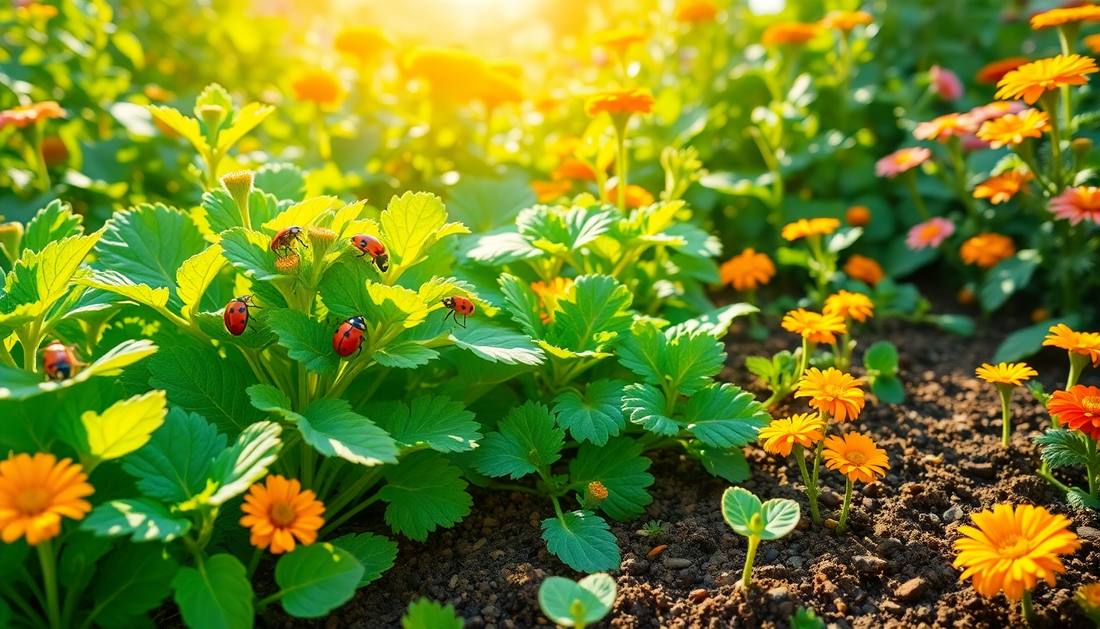
Natural Pest Control Solutions for Vegetable Gardens
Share
As the demand for fresh, locally-grown produce continues to rise, more and more people are turning to vegetable gardening as a way to cultivate their own healthy, sustainable food sources. However, one of the biggest challenges faced by home gardeners is the constant battle against pests and insects that can wreak havoc on delicate vegetable plants.
Conventional pest control methods often rely on harsh chemical pesticides that can be harmful to both the environment and human health. Fortunately, there are a variety of natural, eco-friendly solutions that can effectively manage pests in the vegetable garden without compromising the safety and integrity of your homegrown crops.
Understanding Common Garden Pests
Before we dive into the natural pest control strategies, it's important to first familiarize ourselves with some of the most common garden pests that can threaten the health of vegetable plants. Some of the most prevalent culprits include:
Aphids
These small, soft-bodied insects feed on the sap of plants, causing leaves to curl, wilt, and become discolored. Aphids can quickly multiply and spread, leading to significant damage if left unchecked.
Cabbage Worms
The larvae of the cabbage white butterfly, cabbage worms are voracious eaters that can quickly defoliate brassica crops like broccoli, cauliflower, and kale.
Cucumber Beetles
These striped or spotted beetles feed on the leaves, stems, and fruits of cucumber, squash, and melon plants, transmitting bacterial wilt and other diseases in the process.
Tomato Hornworms
The large, green caterpillars of the hawkmoth can quickly strip a tomato plant of its leaves and fruits, leaving behind a trail of devastation.
Spider Mites
These tiny, web-spinning arachnids suck the chlorophyll from plant leaves, causing them to turn yellow, dry out, and eventually die.
Understanding the life cycles and feeding habits of these common garden pests is the first step in developing an effective natural pest control strategy.
Natural Pest Control Strategies
Now that we've identified some of the most problematic garden pests, let's explore a variety of natural, eco-friendly solutions that can help keep them at bay:
Companion Planting
One of the most effective natural pest control methods is companion planting - the strategic placement of certain plants next to each other to deter or repel unwanted pests. Some examples of beneficial companion plants include:
- Marigolds: These bright, fragrant flowers can help repel aphids, nematodes, and other garden pests.
- Nasturtiums: The pungent leaves and flowers of nasturtiums can act as a natural insecticide, deterring aphids, cucumber beetles, and squash bugs.
- Basil: The strong aroma of basil can help keep flies, mosquitoes, and aphids at bay.
- Borage: This herb is known to attract beneficial insects like ladybugs and lacewings, which prey on common garden pests.
Organic Mulches
Applying a thick layer of organic mulch around the base of your vegetable plants can help deter a variety of pests. Materials like straw, wood chips, or shredded leaves create a physical barrier that makes it more difficult for pests to access the plants. Additionally, the decomposition of organic mulches can release compounds that repel certain insects.
Handpicking and Removal
For smaller infestations, manually removing pests by hand can be an effective and eco-friendly solution. Regularly inspecting your plants and handpicking off any visible insects, caterpillars, or egg masses can go a long way in controlling garden pests.
Beneficial Insects
Encouraging the presence of beneficial insects in your garden is a powerful natural pest control strategy. Predatory insects like ladybugs, lacewings, and praying mantises feed on common garden pests, helping to keep their populations in check. You can attract these beneficial bugs by planting nectar-rich flowers and avoiding the use of broad-spectrum pesticides.
Organic Pesticides
While the goal is to minimize the use of any kind of pesticide, there are some natural, organic options that can be used as a last resort. Products containing active ingredients like neem oil, pyrethrin, or Bacillus thuringiensis (Bt) can be effective in controlling pests without the harmful environmental impact of synthetic chemicals.
Crop Rotation and Diversification
Rotating your vegetable crops from year to year and maintaining a diverse garden can help disrupt the life cycles of many common pests. By planting a variety of crops, you make it more difficult for specific pests to establish a foothold in your garden.
Implementing a Holistic Pest Management Approach
Effective natural pest control in the vegetable garden requires a multi-faceted approach that combines various strategies to create a healthy, balanced ecosystem. By understanding the specific pests in your garden, implementing companion planting techniques, and encouraging the presence of beneficial insects, you can effectively manage garden pests without relying on harsh chemicals.
Remember, natural pest control is not a one-size-fits-all solution - it requires ongoing observation, experimentation, and adaptation to find the right combination of methods that work best for your unique garden environment. With patience, persistence, and a commitment to sustainable gardening practices, you can enjoy a bountiful, pest-free vegetable harvest year after year.
Conclusion
Maintaining a healthy, productive vegetable garden doesn't have to mean resorting to harsh chemical pesticides. By embracing natural pest control solutions, you can protect your homegrown crops while also supporting a thriving, eco-friendly garden ecosystem. From companion planting and organic mulches to handpicking pests and encouraging beneficial insects, there are a variety of effective strategies that can help you manage garden pests in a safe, sustainable manner.
As you embark on your natural pest control journey, remember to stay vigilant, experiment with different techniques, and be patient as you work to establish a balanced, harmonious garden environment. With a little bit of effort and a lot of dedication, you can enjoy a bountiful, pest-free vegetable harvest that nourishes both your body and the planet.
